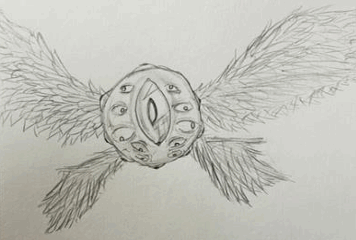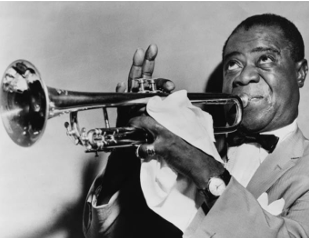Job

What, you may be wondering, does Job, sitting in his large home with his devout prayers while God and the Adversary argue, have to with wilderness?
Throughout this series, we have lodged ourselves mostly in the wilderness. We have been to the desert, the river banks, the mountains, the forest. And we will, today, make our way to the grasslands, the prairies the American interior and the tallgrass of the steppe of the scrubby grassland between the Mediterranean Sea and the deserts of Israel.[1]
But, by way of getting there, we must travel, for a few moments through the land of Uz, or in the Hebrew ootz, a semi-fictious, vaguely known land where Job dwells, a land whose name can alternately mean “wooded area” or “to take advice.” This land has a physical location, at least sort of, and is mentioned a handful of times in the Bible. But it is outside of the Promised Land, it is not a land where God’s people dwell, it is full of strangers and religiously ambiguous quasi-YHWH-ist groups. Which is to say: Job believes in God, the God we know and are familiar with, but it is not a given that all his neighbors do. And Job also believes in this Adversary, or what many of us grew up calling satan, ha-satan, who appears in conversation with God and is something less than the pure evil we were taught that satan represented. This Adversary is more devil’s advocate than devil.
Many of us were taught that Job is a story that wrestles with the question Why do bad things happen to good people? and I want to push back on that notion today. Job is not.a story about theodicy, in the classical modern sense. The earliest readers of Job were not asking Why do bad things happen to good people? When they asked that question, they read Ecclesiastes. Ecclesiastes is the book that asks Why do bad things happen to good people? Meangingless, meaningless, all is meaningless. But we’ll save that for another time.
Job asks a very different question. Job is the story of a settled man with “seven thousand sheep, three thousand camels, five hundred pairs of oxen, five hundred female donkeys, and a vast number of servants.” From its very introduction, this book introduces a different way of life than what Jacob lived when he roamed the vast desert as a nomad, or the hitchhiking life Jesus took up to spread his gospel. Most of the original readers were nomads, or recently settled people with nomad in their blood, with grandparents tucked into rocking chairs and complaining that in my day, we never stopped moving toward the horizon.
But Job’s life is the life of a man who knows a particular place, belongs to it, and raises his livestock on a sprawling mix of grassland and desert. Job is the way that people wrestle with the idea of belonging to a particular patch of land. Humans were nomads before they were farmers, hunter-gatherers before they were cultivators. I think, sometimes, of those who buy second homes or choose to snowbird in Florida, or Arizona, if this choice isn’t rooted in the deeply human pattern of migration. We are a species built for migration, and adapted to staying put.
And the Bible traces the emergence of this new possibility of staying put. It wrestles with those two worldviews, the idea that humans were built to travel and the idea that humans were built to settle. And these two worldviews tend to result in different views on God. Nomads need a different god than farmers.
When I was young, once, a family of American missionaries to Ethiopia came to us on furlough to tell us about their lives and work. They described Ethiopia, the way they lived there, as a land where God was ever close. Because there was no reliable car transport, because you must carry someone on a wagon for miles to the hospital, because the power could go out at any time, they said, “you were always aware that you were dependent on God. And that’s what Americans forget, living in America, with your convenient lightswitches and refrigeration and money and oil-powered vehicles on paved roads. You forget that you are dependent on anything other than yourself.”
And this is the question that Job seeks to answer. Can wealthy, settled people, really have faith in God?
When the Adversary approaches God, the Adversary asks, “Does Job revere God for nothing? Haven’t you fenced him in—his house and all he has—and blessed the work of his hands so that his possessions extend throughout the earth?” This question is an interrogation of Job’s motives: can Job have true faith in God if Job has never needed God? If he always has his camels to sell and pay off a debt, his sheep when the oxen fall sick, a line of women waiving their dowries to marry his sons, and suitors bearing gifts to marry his daughters? Does the man know faith when he is the very model of American self-reliance?
The taking away of Job’s material goods is a test of his faith. Would Americans still believe in God if they had no electricity, no one to clean their houses and deliver their take out? Or is our belief in God subject to our own cleverness? Is God the force that underscores our own cleverness, or is God what we reach out to when our cleverness collapses? Is God a benevolent provider who makes our malls open and our pimples fade, or is God a mysterious and slightly dangerous force who, nonetheless, accompanies us through bitter nights and desperate need?
This is the difference between the God of the farming people and the God of the nomad people. As Richard Manning describes it in the book Grassland, a marvelous story of the North American prairie, “Farming is an activity that requires a fidelity to cycles, a contract that work will be done in spring in return for God’s fulfillment of his [sic] contract each fall.” Manning goes on, “It was the contract that Christianity had perfected by the late nineteenth century to a doctrine tuned to the needs of the hyper-civilization: industrialism. The contract had become the work ethic.”[2]
This in contrast to the life of the nomad, the God Jacob worshipped as he limped across the steppe with his many cattle and family. His wealth pales in comparison to Job, as our wealth pales in comparison to the DeVos family. Manning describes the nomad’s view, particularly the nomad of the Israeli scrub land—or the nomad of the American prairie, before it was shorn and civilized: “The grass was the creation and favored child of the weird god of this weird place and only it could survive.”
When white settlers arrived in the prairies of North Dakota, Kansas, Iowa, “the relentless space swallows the European God.” Think of the story of Laura Ingalls Wilder in the blizzard, when Pa ties a rope to himself so he can walk through the whiteout snow from the house to the barn. Americans have never been comfortable with our tallgrass prairies.
It startled me, when I moved to the Midwest from the inescapable geography of the Pacific Northwest, how little Midwesterners knew of their landscape. They thought the native landscape was strip mall. Because the prairie was gone, invisibilized, like the native people who stewarded it.
In Ann Arbor, we like to emphasize the arbor, to think that we belong to a land of trees. Which is partly true. But we belong to a land of oak savannah, of gorgeous, 6’ diameter oak trees grown sturdy and impressive between skeins of waiving, shoulder-high prairie grass.
We imagine that we belong to the ordered God of neatly-placed trees and grided farms, the God who sends the spring rains and the summer sun and finally and fairly, the fall harvest and winter rest. But we belong to the God who hears the Adversary, the God of Leviathan and Behemoth, the God of the prairies, of lightning strikes and locusts. Ever more so as we throw the climate out of its gentle rhythms, into the more extreme swings of our own disturbances, never more sinners in the hands of an angry god than in the time of climate change.
But even in the time of Job, there were nomads who lived close to the unpredictable God and farmers who lived nearer to an orderly and ordered God. The Christian confession—the confession that we often neglect—is that our God is big enough to be both. Our God is the Creator of order, and the Creator of wildness.
In wedding ourselves to lives like Job’s, we also deaden a part of our faith, that sense of awe that we belong to something more ineffable and mysterious than our prosperity allows us to predict. In going into the wilderness, we gather nearer to the God we need. And the God who loves us, albeit in a new and less predictable way.
[1] See also https://en.wikipedia.org/wiki/Biodiversity_in_Israel,_the_West_Bank,_and_the_Gaza_Strip.
[2] Grassland, 195.


0 Comments